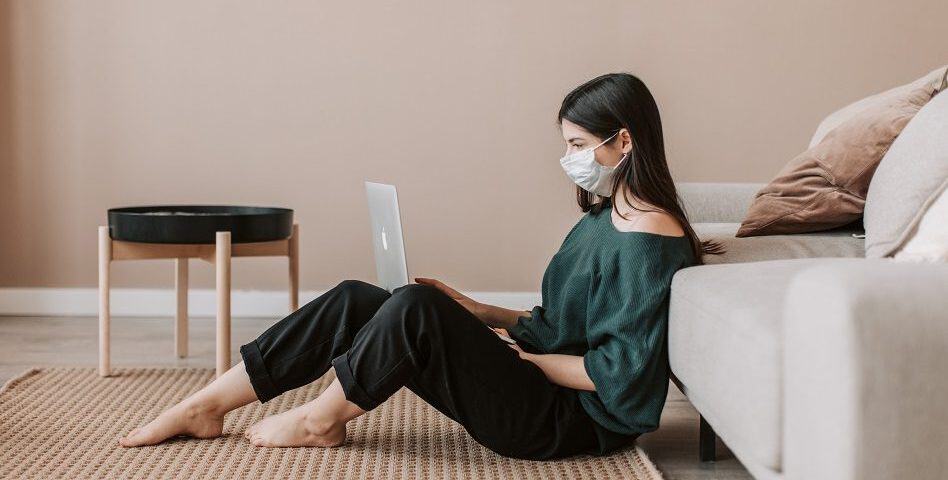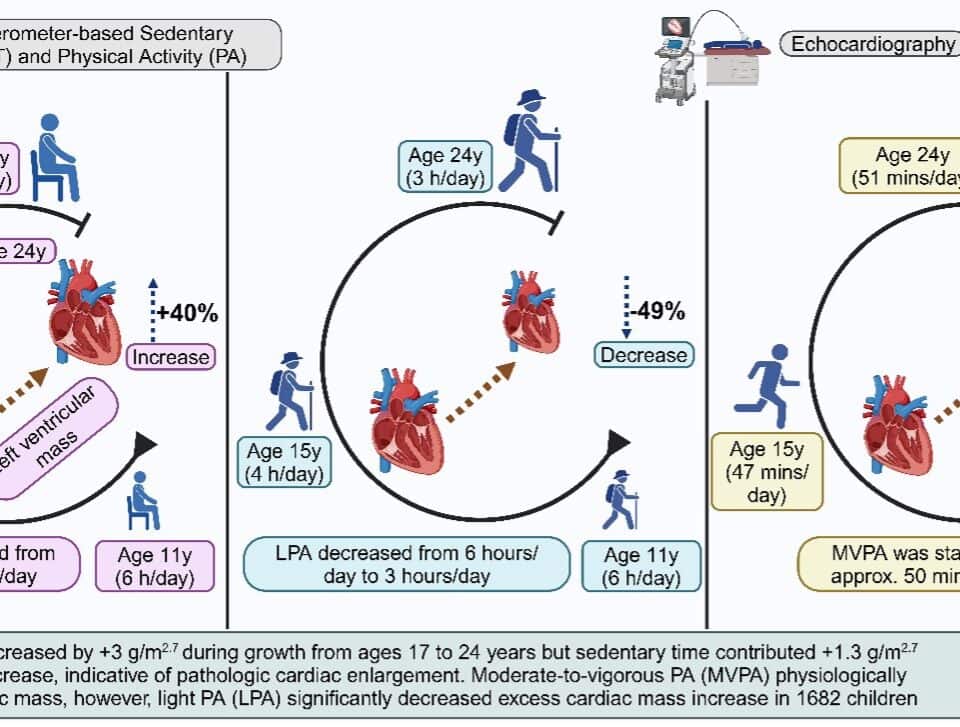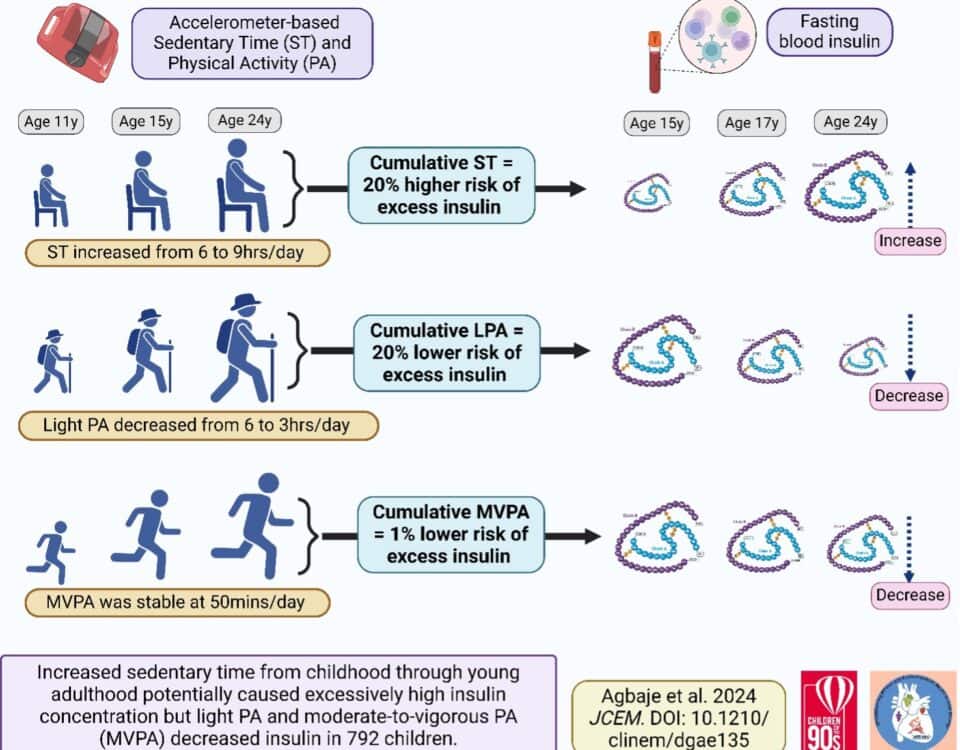
Socio-Demographic Correlates of Total and Domain-Specific Sedentary Behavior in Latin America: A Population-Based Study
August 5, 2020
Physical Activity, Screen Time and Sleep of Canadian Children and Youth During the COVID-19 Pandemic
August 20, 2020This blog provides a brief overview of an article published in Health Reports on July 15, 2020: “Exercise and screen time during the COVID-19 pandemic” by Rachel C Colley, Tracey Bushnik and Kellie Langlois. Thank you to Dr. Rachel C Colley for providing this post.
Background
Life changed dramatically in March 2020 due to the COVID-19 pandemic. Seemingly overnight, our busy lives stopped in their tracks and we remained glued to a terrifying news cycle. As the virus spread around the world, there were widespread border, business and school closures. Many of us suddenly found ourselves working from home, homeschooling our children and avoiding unnecessary trips outside our homes. To manage all this, we became increasingly reliant on our home Internet connections with reports indicating a 40-60% increase in Internet traffic during the spring 2020 global lockdown period.1,2 Newspaper websites, video chat applications, video games and home-based work and learn programs were driving this increase.3 Screen time is a key contributor to sedentary behaviour, defined as ‘any waking behaviour characterized by an energy expenditure ≤ 1.5 metabolic equivalents (METs), while in a sitting, reclining or lying posture’.4 Prior to COVID-19, Canadian adults were already spending the majority of their day engaged in sedentary behaviour5 and recent evidence indicates screen-based activities have increased over the past few decades.6 Excess sedentary time is associated with increased risk of depression7 and poorer mental8 and physical health.9 During the confinement period, fewer Canadians rated their own mental health highly when compared with a sample of Canadians in 2018.10 Moreover, many reported increased feelings of anxiety.11 Did Canadians increase their screen time in response to COVID-19? If so, how did this affect our mental and general health?
What did we do?
Statistics Canada quickly mobilized resources to get a survey in the field to understand the impact of COVID-19 on the lives of Canadians: the Canadian Perspectives Survey Series. This survey asked over 7,000 Canadians questions about the labour market, behaviours and health impacts during the early stages of the global lockdown period: the week of March 29 to April 3rd, 2020. Participants were asked if they were exercising indoors or outdoors and whether they had increased, decreased or made no change to their TV, Internet and video game habits. Participants were also asked to self-rate their mental and general health as poor, fair, good, very good or excellent.
What did we find?
- The majority of survey participants reported that they had increased their TV time (60% of men and 66% of women) and Internet use (53% of men and 69% of women) during late March and early April 2020, while less than a quarter reported increased video game use. More women increased their TV and Internet use compared with men, while men were more likely to report increased video game use. Increases in any screen use – either TV, Internet or video games – generally declined with increasing age.
- Men and women who did not change or who decreased their TV time were more likely to self-perceive their mental and general health as very good or excellent when compared with those who increased TV time.
- Men and women reported better mental health if they combined outdoor exercise with limiting increases in screen use.
Take-home messages:
This new study found that participants who were limiting increases in screen time during the COVID-19 pandemic were more likely to self-perceive their mental and general health highly. At the time of writing this blog (July 2020), we are still living the reality of the COVID-19 pandemic in Canada. It is becoming increasingly apparent that the virus and its associated restrictions on our lives will be with us for some time. Finding ways to deal with this new reality is not easy but keeping our screen time in check may be a strategy worth considering. The goal of this article is simply to remind us all that there are small things we can strive to do every day in order to get through this challenging time. Perhaps a good place to start is to walk away from the screen once you have finished reading this blog and go outside for a walk! 😉
References:
- The Global Internet Phenomena Report COVID-19 Spotlight. May 2020. Available at: https://www.sandvine.com/covid-internet-sportlight-report
- Tackling Coronavirus (COVID-19):Contributing to a Global Effort: Keeping the Internet up and running in times of crisis. Updated 4 May 2020. Available at: oecd.org/coronavirus
- Koeze E, Popper N. The virus changed the way we Internet. New York Times. April 7, Available at: https://www.nytimes. com/interactive/2020/04/07/technology/coronavirus-internet-use.html
- Tremblay MS, Aubert S, Barnes JD et al. Sedentary Behavior Research Network (SBRN) – Terminology Consensus Project process and outcome. International Journal of Behavioral Nutrition and Physical Activity. 2017; 14:75.
- Statistics Canada. Average time spent sedentary 2019; Available at: https: www150.statcan.gc.ca/t1/tb11/en/tv.action?pid=1310033801. Accessed 20 May 2020.
- Prince SA, Melvin A, Roberts KC, Butler GP, Thompson W. Sedentary behaviour surveillance in Canada: trends, challenges and lessons learned. International Journal of Behavioral Nutrition and Physical Activity 2020; 17: 34.
- Hamer M, Stamatakis E, Mishra GD. Television- and screen-based activity and mental well-being in adults. American Journal of Preventive Medicine 2010; 38(4): 375-380.
- Wang X, Li Y, Fan H. The associations between screen time-based sedentary behavior and depression : a systematic review and meta-analysis. BMC Public Health 2019; 19: 1524.
- Biswas A, Oh PI, Faulkner GE et al. Sedentary time and its association with risk for disease incidence, mortality, and hospitalization in adults: a systematic review and meta-analysis. Annals of Internal Medicine 2015; 162(2): 123-132.
- Patterson R, McNamara E, Tainio M et al. Sedentary behaviour and risk of all-cause, cardiovascular and cancer mortality, and incident type 2 diabetes: a systematic review and dose response meta-analysis. European Journal of Epidemiology 2018; 33: 811-829.
- Findlay L and R Arim. Canadians report lower self-perceived mental health during the COVID-19 pandemic. Statcan COVID-19: Data to Insights for a Better Canada. April 24, 2020. Available at:
- Statistics Canada. Impacts of COVID-19 on Canadians: First results from crowdsourcing. April 23, 2020. Catalogue no. 11-001-X.
About the author of the blog

Dr. Rachel Colley is a Senior Research Analyst in the Health Analysis Division at Statistics Canada. Her research is focused on examining the relationships between physical activity, sedentary behaviour and health in children and adults. Dr. Colley has been working with the accelerometer-measured physical activity data of the Canadian Health Measures Survey at Statistics Canada since 2007. Rachel previously worked as a Research Scientist with the Healthy Active Living and Obesity Research Group (HALO) at the Children’s Hospital of Eastern Ontario Research Institute and she also served as the Scientific Officer for the Active Healthy Kids Canada Report Card on Physical Activity for Children and Youth (2009-2013). Rachel completed her PhD in Human Movement Studies at the Queensland University of Technology in Australia in 2007.
Click here to read the full paper “Exercise and screen time during the COVID-19 pandemic” in Health Reports.




